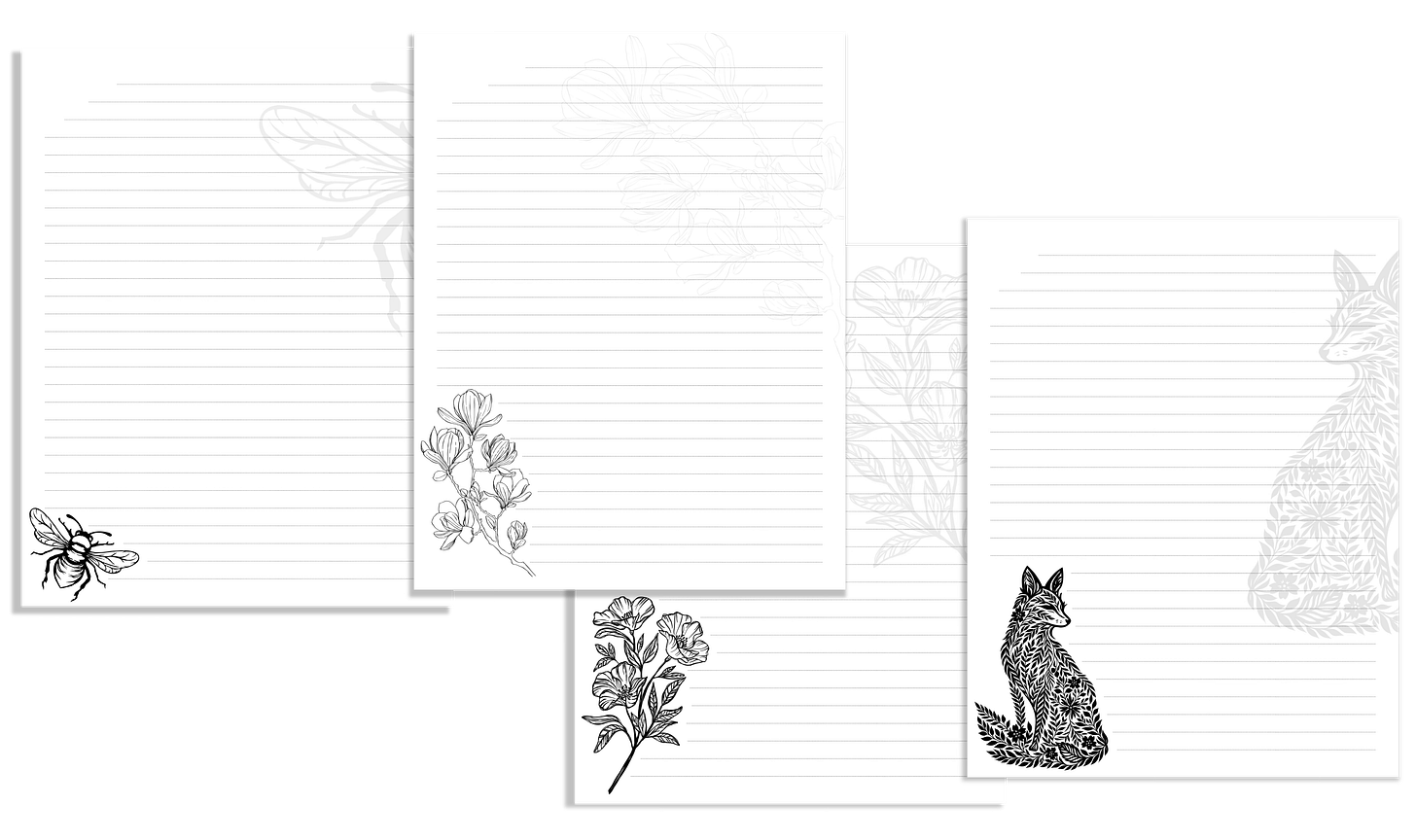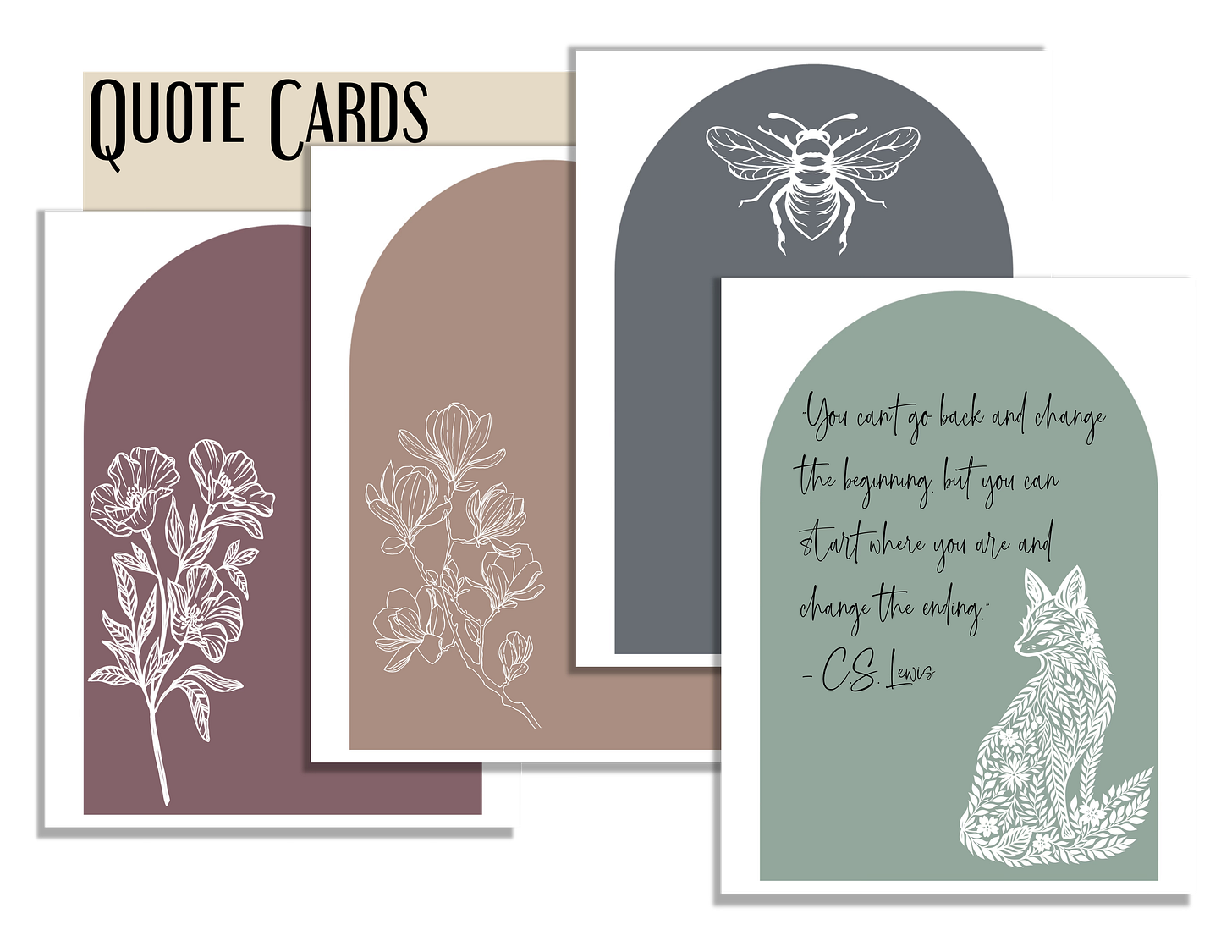A Love Letter to... Letters
How Instant Connection Drove Us Further Apart
In gaining our ability to connect instantly, did we lose the art of connecting authentically or meaningfully? What are some of the things that speed and convenience have done to our language?
Disappearance of Delay
The internet — intended to be a gathering place of wisdom and collaboration, was brought to the people by the work of Tim Berners-Lee, the inventor of the World Wide Web (www.) as we know it. His vision wasn’t driven by profit or power, but by his determination that knowledge should be accessible to all.
The web was built to link ideas across borders, serving as a shared space for questions, connection and collaboration.
But over the decades, that worthy foundation eroded, overtaken by the noise and manipulation of a modern online world. It’s been optimized and shaped by algorithms to value engagement over facts and driven by momentum and monetization rather than truth. This space once meant to link us, is now a crowded hall of echoes. Online connection is promised, but so often, only the illusion of community is delivered.
Real relationships can still form online, but too often we’re left with diluted conversations and a lingering sense of distrust. We live in an age where we are constantly accessible yet rarely fully present.
Think of how alienating it feels to be sharing something meaningful, only to watch the other person glance at their phone, pulled away mid sentence by a notification. Or how shallow it feels to receive a quick “like” on a photo compared to the warmth of sitting beside a friend, sharing memories and sparking real conversation.
When our interactions are reduced to taps and emojis, we lose the nuance, curiosity and empathy that form the foundations of true connection.
Science of Meaning
Consider the letter — pouring out your heart in a way that a quick call or hurried text hardly allows. Alone at your desk, pen in hand, your thoughts and feelings flow onto the page. You aren't speaking into the void or to the multitudes; but to a singular someone.
Consider the journal — pouring out your heart so that your future self, or even the next generation, can hold a piece of your history. The hurts you’ve survived, the wins you experienced and the beauty found in your ordinary days. You aren’t speaking to the void here either, you’re giving your mind a place to safely walk through both pain and joy, step by step, to find peace.
Science even backs this up.
1. Emotional and Psychological Restoration
“Emotional and Physical Health Benefits of Expressive Writing”
—Baikie & Wilhelm, 2005
“Writing about traumatic, stressful or emotional events has been found to result in improvements in both physical and psychological health…”
2. Deepened Understanding Through Conceptual Processing
“The Pen Is Mightier Than the Keyboard”
—Mueller & Oppenheimer, 2014
“Participants who took longhand notes performed significantly better on conceptual questions than laptop note takers.”
3. Presence and Mindfulness Through Tactile Engagement
“Digitizing Literacy: Reflections on the Haptics of Writing”
—Mangen & Velay, 2010
“In handwriting, the visual attention of the writer is dedicated to the very tip of the pen, which is also the part of the hand that executes the motor program. In typewriting, by contrast, visual attention is detached from the haptic input.”
When writing by hand you make conscious choices: what to say, what to leave out and what tone to use. There is time to refine your thoughts into something lasting, maybe even something cherished by later generations. Letters can be held, reread and rediscovered years later. Physically holding words written years before gives you a tangible bridge to history, offering a deep sensory connection that digital communication rarely provides.
I won’t just lean on research, I’ve lived it. The peer reviewed studies quoted above (and linked at the bottom of this post) dig into the points I’ve quoted above with circuitous and exhaustive detail, but for me, the evidence has always been personal.
In college, I alternated between handwritten and typed notes. The difference was stark. On paper I could map out the ideas in a way that made sense to my mind, allowing me to fully grasp a subject by wrestling with how to lay it out. A laptop, by contrast, pushed me toward transcription, faster, yes, of course faster, but much emptier.
I’ve seen the power of handwriting in my own friendships, too. Nearly ten years after college, I reconnected with two friends I’d lost touch with and suggested we start a traveling journal. We mailed it between the three of us, each living in different corners of the country, filling its pages with drawings, musings and memories.
For a time, that journal was a lifeline. It kept us deeply engaged in one another’s lives in ways that social media never could. It encouraged us to better use the instant tools we had (group chats and phone calls) because at the core was this deep connection from our shared writing.
But as time and life inevitably got in the way, the journal stopped moving… and so did our conversations. Social media became our default connection and over the years the closeness we once shared faded yet again.
Just another proof for me that “social media" is often unsociable.
Build or Burn
“Words kill, words give life; they’re either poison or fruit — you choose.”Proverbs 18:21 — The Message
From the beginning, scripture has told us that words shape the world. The Bible itself is a testament to this truth, not because the papyrus or ancient leather bindings were precious, but because the words they carried were worth more than gold. These words have endured across the centuries, handwritten by trusted scribes, each stroke of ink preserving divine truth. The breath of God woven into words.
“A gentle answer turns away wrath, but a harsh word stirs up anger.”Proverbs 15:1 — NLT
Words deserve our time. They should demand deeper thought. This was more easily understood in early America where letters were the backbone of connection, debate, influence. Every word mattered, because committing something to paper was no small deed. The paper, ink and postage all cost money. Once you add in the effort required to sit down and write before sending it off, it’s an even greater investment, both of time and heart.
In earlier years, if you read something in the local paper and wanted to respond, either with praise or protest, here’s what it took:
Take up a quill and ink it.
Find clean paper — often bought by the sheet. Not cheap.
Thoughtfully craft your words, knowing they might travel weeks or even months before being read.
Fold and seal the letter.
Walk it to the post office or give to a courier.
That long, deliberate process naturally built in a much needed filter. Is what I want to say, something that needs to be said? Every sentence carried its own weight because you had to decide if it was worth the ink, the paper, the money and the time.
Now, we live in the age of rage. It takes two thumbs and ten seconds to toss our thoughts into someone else’s life. Outrage is instantaneous, and our thoughts are unfiltered.
“The tongue is a small part of the body, but it makes great boasts. Consider what a great forest is set on fire by a small spark.”
James 3:5 — NIV
How many fires do we light daily, without even realizing? A forced pause, a breath between thought and action, can save us from setting the world, or even just one heart, ablaze.
I won’t pretend I’ve never harbored cruel or bitter thoughts. But what I have learned (and try to practice daily) is restraint. It’s a lost art.
We are all called to remember that words bless and curse with equal force. They can spark compassion and ignite anger in tandem.
We’ve forgotten that words have both started wars and ended them.
Connecting Slowly
In this world speed is everything; even modern mail (arriving in just a few days) can feel unbearably slow. But maybe that slowness can be part of its beauty? Like a home cooked meal, it takes more time, but it nourishes more deeply. After all, doesn’t a scratch made dinner mean more than something grabbed from a drive through window?
Texting, for all its conveniences, doesn’t often offer much substance. We dash off instant replies, quickly skim each other’s thoughts and often don't need to return later to reread anything. The messages keep us connected, yes, but only on a surface level.
Don’t misunderstand me, I’m not against fast connection… it’s just that there is room for both. A quick text can update, reassure and bring a needed smile. But sometimes we crave more than immediacy, we crave depth.
That’s what a letter offers. It’s the slow food of the soul, crafted with care and delivered with the weight of time. It’s not just the words that matter, but the space they traveled to reach us.
Legacy of Letters
The written word often outlives the author. A letter is not just ink on paper, it’s a living record of a single moment in history. Letters are today’s stone tablets — they are the words that endure.
Think of Benjamin Franklin, who sent clever essays to Philadelphia newspapers under the name “Silence Dogood.” His words, written under a fictional woman’s name, sparked debate and displayed a wit that remains memorable (and on display) centuries later.
Remember Thomas Jefferson, whose letters, both personal and political, reveal the astonishing depths of his mind, shaping not just the birth of America but also the future of France. He drafted visionary writing that far outlived him. His ideas still echo in the American conscience today.
Here in modern times, letters have also built legacies. Julia Child’s rise to fame, for example, began with a simple letter exchange: she wrote a response to an article about kitchen knives, which led to a reply from the author’s wife. That single little letter grew into a lifelong friendship and was a pivotal step toward a leading a life that would change how America cooked.
Calling for Stewardship
Instant gratification chips away at the soul. We’ve trained ourselves to expect everything from answers to entertainment to validation—now. Each quick interaction delivers a small hit of dopamine, the brain’s “reward” chemical, but the pleasure fades almost as soon as it arrives.
Neuroscientists have found that this constant loop of scroll-click-react, rewires the brain to crave speed and novelty, making it harder to focus and reflect. It also makes it more difficult for us to find contentment in slower, more meaningful connections.
Scripture speaks to this too:
“Everyone should be quick to listen, slow to speak and slow to become angry.”
James 1:19 — NIV“The words of the reckless pierce like swords, but the tongue of the wise brings healing.”
Proverbs 12:18 — NIV
What does this mean for us? It means we must fight the urge to voice our thoughts without considering their weight. Stewardship over our words calls for a stillness before speaking, texting or even writing a letter.
It’s in this stillness that wisdom has the space to take root and grow.
We can compose better texts. We can write real letters. We can choose to give more of ourselves. Choose clarity instead of reaction and thoughtfulness over impulse. Both heartfelt letters and meaningful texts share the same ingredient: undivided presence.
Quiet Rebellion
At the heart of Forthwith Journal is this quiet rebellion — intentionality. Making the choice to step away from the superficial societal norms and challenging them with our presence. The heart of all of this is this belief: that small acts, like a quarterly letter, or even a text that lingers a little longer than usual, still have the power to make a difference.
Maybe in your circle, you can be the first to raise the flag of this rebellion. Start something new. Be rebellious.
Write a letter.
Peer Reviewed Studies observing the benefits of handwriting:
If you’re still here…
Here are a few extras to make writing a letter or putting thoughts to paper feel a little bit more special.
Here are some stationery sets you can print out. Use as nice of paper as your printer can handle - you might need to play with the settings to get it to print to the right edges. My printer is temperamental, I can only assume everyone else’s has just as much sass.
The file for the stationery is all four designs shown below, in one PDF. So all four will print at once, if you want a specific design, rather than all four pages, you can visit my Gumroad to get the individual files.
And here are some quote cards to help pad out your envelope. There’s a faint cut line in the file, so you can see where to divide them up.
All four are on one page, so again, if you’d prefer a single design, you’ll also need to visit my Gumroad.
Go send something!






